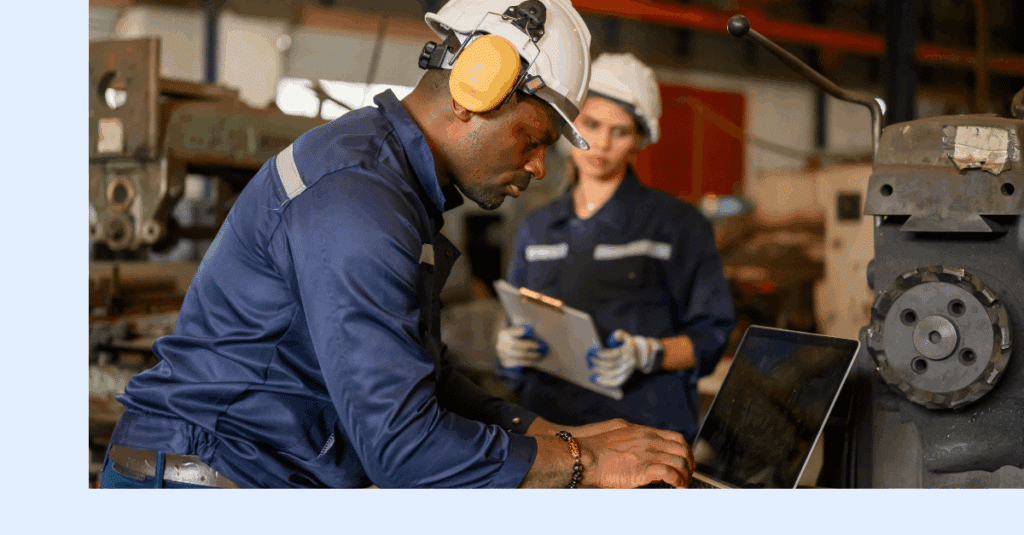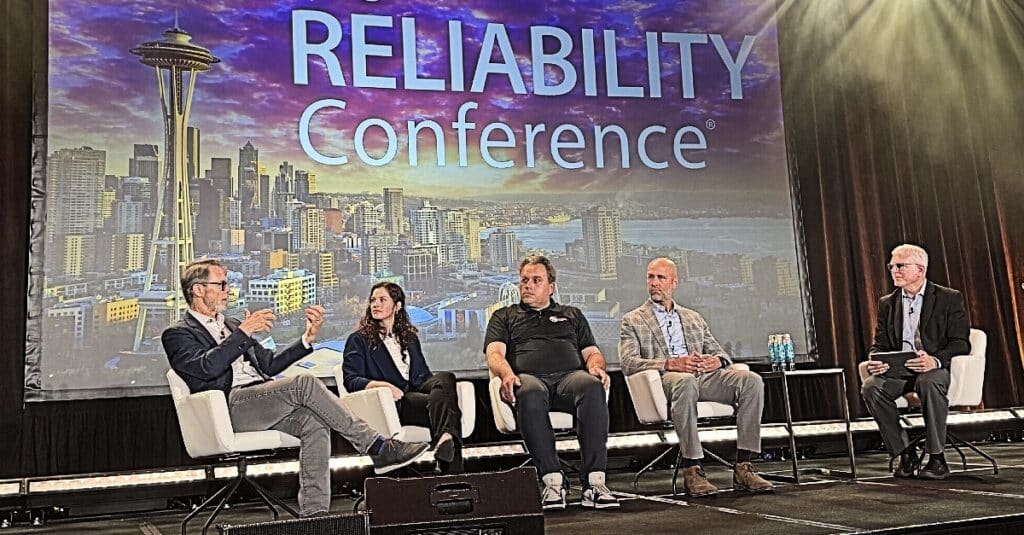
Is this the Manufacturing Metaverse’s Big Bang moment? … Is everyone suddenly a supply chain expert? … How do we make green chips? … Here’s a round-up of some of the manufacturing-related press from the last month that caught Augury’s collective eye – and why it mattered.
Masters of the Metaverse
Last month, we did a roundup of new catchphrases arising in the manufacturing industry. We saved the biggest for now: Welcome to the Metaverse! Mark Zuckerberg envisions it as that place which makes Facebook fun again – “a hybrid between the social platforms that we see today, but an environment where you’re embodied in it,” as he puts it.
But it turns out that some manufacturers are ahead of the curve and regard the term ‘metaverse’ as just a fancy consumer-facing term for ‘digital twinning’.
“BMW is using the metaverse to assist in car development,” according to ‘The Metaverse Is Taking Off’. “5G, AI, Edge computing and GPU development are all essential pillars of a future where we move smoothly and naturally between this world and a digital twin. This near-identical sibling world will take us deeper into a new experience of reality, or as far away from it as we like.”
In a nutshell, it’s about designing and testing everything in a digital realm before unleashing it on the physical realm, and thereby minimizing downtime. Some people are already envisioning a world where everyone can design their own ‘3D content’ in this digital realm – and thereby transforming manufacturing into something less ‘mass’ and more personalized.
Meanwhile, ‘Google launches ‘digital twin’ tool for logistics and manufacturing’.
Can We Cut to The Green?
To achieve a more widespread manufacturing metaverse, we will need mountains of microchips. But not only are we facing a shortage, there’s another awkward reality: the production of microchips comes with a mountain-sized carbon footprint.
“The industry presents a paradox. Meeting global climate goals will, in part, rely on semiconductors. They’re integral to electric vehicles, solar arrays and wind turbines. But chip manufacturing also contributes to the climate crisis. It requires huge amounts of energy and water – a chip fabrication plant, or fab, can use millions of gallons of water a day – and creates hazardous waste,” according to ‘The Computer Chip Industry Has A Dirty Climate Secret’.
Perhaps Africa has the answer. “Africa’s lack of industrial development puts it in a strong position to develop low-carbon manufacturing without the costs of transitioning from fossil fuel-based factories,” according to ‘Africa Needs $2 Trillion for Green Manufacturing, McKinsey Says’.
Time To Give the Supply Chain Back to The Professionals?
Many people working in manufacturing saw one plus-point during the Covid-19 pandemic: ‘supply chain’ became a household term and thereby finally giving our industry some credit for supplying the world with, well, everything.
But now it may be getting out of hand. While 2020 can be remembered for the rise of the so-called ‘armchair virologist’, 2021 can very well be remembered for the rise of the ‘couch-bound supply chain expert’.
It’s certainly easy to become such an expert thanks to a glut of excellent journalism around the subject: ‘How A Single Missing Part Can Hold Up $5 Million Machines And Unleash Industrial Hell’, ‘A Perfect Storm’: Supply Chain Crisis Could Blow World Economy Off Course’ and ‘Why Is the Supply Chain Still So Snarled? We Explain, With a Hot Tub’.
While many pundits blame the supply chain disruptions on a global pandemic exposing the weaknesses of an overly globalized trade system, others have dug deeper….
Maybe Covid Should Not Get the Full Blame?
“From railroads to plastic bags to semiconductors to ice cream, Wall Street and monopolists are creating shortages and exploiting them,” according to the fascinating and very timely ‘Counterfeit Capitalism: Why a Monopolized Economy Leads to Inflation and Shortages’.
“The consolidation of power over supply chains in the hands of Wall Street, and the thinning out of how we make and produce things over forty years in the name of efficiency, has made our economy much less resilient to shocks. These shortages are the result.”
“Uber’s attempt to monopolize the taxi market with cheap prices, and the resulting shortage years later after the market was ruined, is a very simple way to understand the situation, if you imagine that taking place across multiple industry segments beyond taxis. Monopolistic business models often appear to be efficient or good for consumers – for a time – but end up destroying productive capacity on the backend, which then creates or worsens a shortage. In that case, cab drivers, who used to be able to make a reasonable living, haven’t really come back.”
“The scariest part of this whole saga is not that a bunch of malevolent monopolists run our economy, inducing shortages for profit. Indeed, these shortages are not intentional, any more than the financial crash of 2008 was intentional. Most of what is happening is unintended. Bad actors aren’t steering the ship. They are just making sure that no one else can, even when it’s headed for the rocks.”
Is this something a metaverse can fix?




